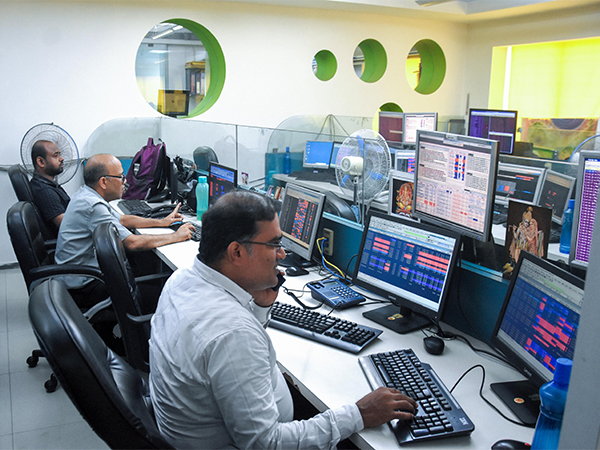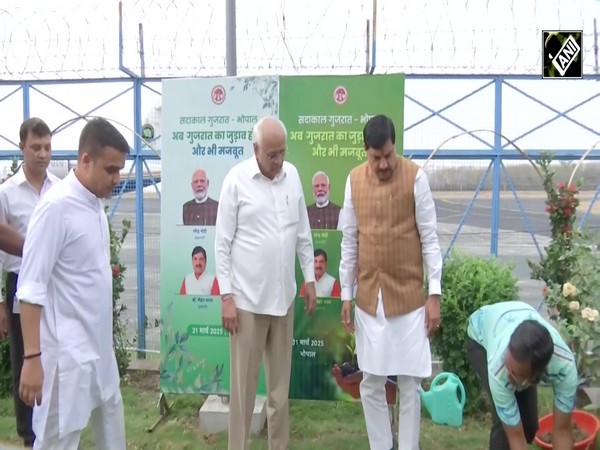Insights from PS Gahlaut Highlight the Crucial Role of Agriculture in Combating Climate Change
Mar 05, 2024

VMPL
New Delhi [India], March 5: By embracing sustainable practices, supporting policy frameworks, and mobilizing financial resources, we can unlock agriculture's potential as a solution to the climate crisis," quotes PS Gahlaut.
In the battle against climate change, agriculture emerges as both a frontline defender and a significant contributor to global emissions. Navigating the complexities of climate mitigation and adaptation, insights from The Managing Director of Indian Potash Limited, PS Gahlaut, underscores the pivotal role that agriculture plays in this endeavor. "DeSmog reports an increasing body of evidence pointing to big agriculture's significant contribution to the climate crisis.
A study conducted in March highlights that unless decisive measures are taken, emissions from the food system alone could exceed the threshold of 1.5 degrees Celsius of global warming, worsening the situation further," says PS Gahlaut. Gahlaut's perspective shines a light on the transformative power of sustainable farming practices and the imperative for policy support and investment to drive widespread adoption.
PS Gahlaut emphasizes, "The urgency to embrace sustainable farming practices to mitigate agriculture's carbon footprint is more imperative than ever before. Practices such as conservation tillage, crop rotation, agroforestry, and integrated pest management not only enhance soil health and biodiversity but also contribute to carbon sequestration and emissions reduction. By minimizing the use of synthetic fertilizers and pesticides, farmers can mitigate greenhouse gas emissions while safeguarding ecosystem resilience." However, the transition to sustainable agriculture requires more than individual efforts; it necessitates supportive policies and increased investment in climate-smart practices. Gahlaut stresses the importance of governments, international organizations, and private sector stakeholders collaborating to provide farmers with the necessary resources, incentives, and technical assistance. Financial incentives, such as subsidies for adopting climate-friendly practices or access to affordable credit for investing in sustainable technologies, can motivate farmers to embrace change and overcome barriers to adoption.
Furthermore, enhancing the resilience of agricultural systems to climate impacts is imperative. Extreme weather events, shifting precipitation patterns, and pest outbreaks pose significant challenges to food security. Investing in climate-smart agriculture, which incorporates resilient crop varieties, efficient irrigation techniques, and risk management strategies, can help farmers adapt to changing climatic conditions and minimize production losses.
"The 28th UN Climate Change Conference of the Parties, known as COP28, emerges as a pivotal juncture," says Parvinder Singh Gahlaut. "This congregation transcends a mere international assembly; it stands as a defining moment in our collective dedication to tackling the climate crisis. While it is crucial to confront the challenges, the primary focus should be on promoting authentic, sustainable practices and ensuring corporate accountability. The effectiveness of COP28 will be determined not only by the agreements reached but also by the tangible steps taken to safeguard a sustainable future for our planet," added PS Gahlaut.
Aligning Agricultural Policies with Climate Objectives
Aligning agricultural policies with climate objectives is essential for driving systemic change. By integrating climate considerations into agricultural planning and decision-making processes, policymakers can create an enabling environment for sustainable practices to flourish. This includes setting ambitious emissions reduction targets, promoting sustainable land management practices, and providing extension services to support farmers in adopting climate-smart techniques.
"Moreover, mobilizing financial resources for climate-smart agriculture is paramount. Public and private sector investment in research and development, infrastructure, and capacity-building initiatives can accelerate the transition to a more resilient and low-emission food system," says Parvinder Singh Gahlaut. International cooperation and innovative financing mechanisms, such as climate funds and carbon markets, can channel resources to where they are most needed and ensure equitable access to opportunities for farmers worldwide.
PS Gahlaut underscores the critical role of agriculture in combating climate change. "By embracing sustainable practices, supporting policy frameworks, and mobilizing financial resources, we can unlock agriculture's potential as a solution to the climate crisis. By working together across sectors and borders, we can build a more resilient and sustainable food system that nourishes both people and the planet for generations to come," concludes PS Gahlaut.
(ADVERTORIAL DISCLAIMER: The above press release has been provided by VMPL. ANI will not be responsible in any way for the content of the same)
















